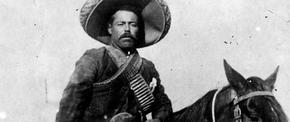The views expressed in our content reflect individual perspectives and do not represent the authoritative views of the Baha'i Faith.
 I’ve been reading a good book called The Penguin and the Leviathan, by Yochai Benkler. The basic premise of the book is that our social, political, and economic systems have been based for far too long on a competitive, “survival of the fittest” framework that may now hurt humanity more than it helps us. Drawing on both a variety of scientific studies and new trends in global communications, Benkler argues that, some selfish individuals aside, humans are also wired for cooperation, collaboration, and making moral choices that benefit others. He further says societies that encourage “cooperative practices will be more successful and likely to survive, especially in a challenging environment, than those that do not.”
I’ve been reading a good book called The Penguin and the Leviathan, by Yochai Benkler. The basic premise of the book is that our social, political, and economic systems have been based for far too long on a competitive, “survival of the fittest” framework that may now hurt humanity more than it helps us. Drawing on both a variety of scientific studies and new trends in global communications, Benkler argues that, some selfish individuals aside, humans are also wired for cooperation, collaboration, and making moral choices that benefit others. He further says societies that encourage “cooperative practices will be more successful and likely to survive, especially in a challenging environment, than those that do not.”
Benkler isn’t naïve about human nature, per se, and claims that a large minority of people (about 30 percent) exhibit selfish behaviors. And, which one of us isn’t selfish at times? But, the data also shows that “fully half of all people systematically, significantly, and predictably behave cooperatively.” Benkler’s position is reiterated in the work of other researchers, such as William Ury, whose book The Third Side is based on the premise that fighting isn’t an inevitable part of human nature. Steven Pinker from Harvard also attracted a lot of attention with his recent publication — and New York Times bestseller — The Better Angels of Our Nature. The book chronicles downward trends in violence from an historical perspective and questions myths about humankind’s inherent violence. All of these authors point out that civilization’s great advances came from working together. As a statement from the Baha’i tradition adds:
It is certain that the greatest of instrumentalities for achieving the advancement and the glory of man, the supreme agency for the enlightenment and the redemption of the world, is love and fellowship and unity among all the members of the human race. Nothing can be affected in the world, not even conceivably, without unity and agreement… – Abdu’l-Baha, The Secret of Divine Civilization, p. 73.
 We can forget this fundamental truth when the systems of our modern world, and the media we listen to, tends to operate from the divisive perspective that human nature is self-interested and aggressive. Think for a minute about how that fundamental understanding has affected every institution of our modern society. Even the peace and conflict resolution field starts from a conflict-centered paradigm. But, what if that lens is wrong, or, at least, only partially right?
We can forget this fundamental truth when the systems of our modern world, and the media we listen to, tends to operate from the divisive perspective that human nature is self-interested and aggressive. Think for a minute about how that fundamental understanding has affected every institution of our modern society. Even the peace and conflict resolution field starts from a conflict-centered paradigm. But, what if that lens is wrong, or, at least, only partially right?
A statement released by the international governing body of the Baha’i Faith in the 1980’s is fairly straightforward about how an overly dark view of human nature has been allowed to impact our global consciousness:
So much have aggression and conflict come to characterize our social, economic and religious systems, that many have succumbed to the view that such behavior is intrinsic to human nature and therefore ineradicable. With the entrenchment of this view, a paralyzing contradiction has developed in human affairs. On the one hand, people of all nations proclaim not only their readiness but their longing for peace and harmony, for an end to the harrowing apprehensions tormenting their daily lives. On the other, uncritical assent is given to the proposition that human beings are incorrigibly selfish and aggressive and thus incapable of erecting a social system at once progressive and peaceful, dynamic and harmonious, a system giving free play to individual creativity and initiative but based on cooperation and reciprocity. As the need for peace becomes more urgent, this fundamental contradiction, which hinders its realization, demands a reassessment of the assumptions upon which the commonly held view of mankind’s historical predicament is based. Dispassionately examined, the evidence reveals that such conduct, far from expressing man’s true self, represents a distortion of the human spirit. – Universal House of Justice, The Promise of World Peace.
The Baha’i writings emphasize each person’s nobility and capacity for selflessness, and the power of unity and cooperation to effect change. Baha’is recognize humankind’s potential for evil and injustice, but also exalt our capacity for altruism, moral transcendence and cooperation. The Baha’i writings clearly point out that each person has two natures: a spiritual or higher nature and a material or lower nature:
Signs of both these natures are to be found in men. In his material aspect he expresses untruth, cruelty and injustice; all these are the outcome of his lower nature. The attributes of his Divine nature are shown forth in love, mercy, kindness, truth and justice, one and all being expressions of his higher nature. Every good habit, every noble quality belongs to man’s spiritual nature, whereas all his imperfections and sinful actions are born of his material nature. – Abdu’l-Baha, Paris Talks, p. 60.
Most contemporary discourse on human nature does not take this spiritual dimension into account — but Baha’is see human nature in a broader context. The lens through which one sees the world shapes the attitudes, behaviors, policies, and institutions that unfold from that understanding. We have little to lose and much to gain by trying on some different glasses.
You May Also Like
Comments

















I've recently re-read the House of Justice's Peace Message that Ms. Caldwell quotes above, and what a brilliant statement it is. They have capsulized this, and many other of the challenges we face in lifting our talk and improving our walk. Confirmations abound in that document, nearly 30 years old (I think) and as useful and challenging as it ever was. More.